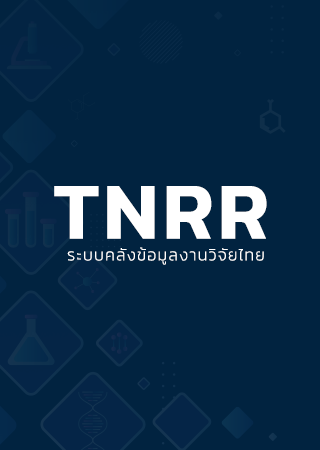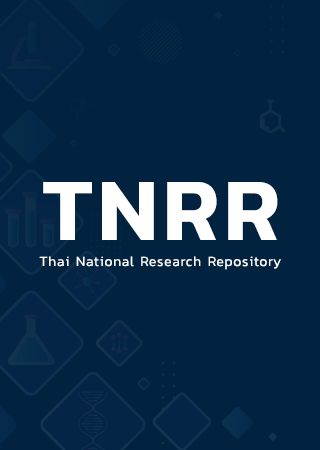Description
สังคมไทยยังขาดการจัดการเรียนรู้เกี่ยวกับการพัฒนาที่อยู่อาศัย ไปสู่การปฏิบัติ ที่สอดคล้องกันสำหรับนักเรียนและประชาชน การศึกษาวิจัยชิ้นนี้นับเป็นครั้งแรกที่มีการวิจัย เพื่อสร้างความเปลี่ยนแปลงในการจัดการเรียนรู้ของภาคประชาชนเรื่องการพัฒนาที่อยู่อาศัย ที่ทำให้กระบวนทัศน์ในการพัฒนาที่อยู่อาศัยของประเทศเกิดการเปลี่ยนแปลงครั้งใหญ่ ผลสำเร็จ ของการศึกษาวิจัยเนื่องมาจากการใช้วิธีการบูรณาการแนวทางการวิจัยเชิงปฏิบัติการ อันประกอบด้วย 1) การวิจัยเชิงสำรวจ (Survey Research) เพื่อสำรวจที่อยู่อาศัยและชุมชนใน 112 ครอบครัว 28 โรงเรียนจาก 14 จังหวัดใน 7 ภูมิภาคทั่วประเทศ 2) การวิจัยเชิงปฏิบัติการอย่างมีส่วนร่วม (Participatory Action Research) และ 3) การจัดการความรู้ (Knowledge Management) ทั้งในระดับพื้นที่ และระดับประเทศ ร่วมกับการจัดประกวดการพัฒนาที่อยู่อาศัยของนักเรียน
การวิจัยได้เปิดโอกาสให้เด็กที่เป็นกลุ่มเด็กด้อยโอกาสหรือมาจากครอบครัวชายขอบ ของสังคมมีบทบาทนำในการสร้างการเรียนรู้ และเปลี่ยนการเรียนรู้เพื่อตัวเองสู่การเรียนรู้เพื่อครอบครัวและชุมชน การเรียนรู้ที่เกิดขึ้นร่วมกันระหว่างนักเรียน ผู้ปกครอง โรงเรียน ชุมชน และภาคประชาสังคมต่างๆ กว่า 500 คน ใน 112 ชุมชนและการขับเคลื่อนวาทกรรมสาธารณะเรื่องการพัฒนาที่อยู่อาศัย ได้สร้างระบบความรู้ชุดใหม่ขึ้นในสังคมไทยที่สามารถประยุกต์ใช้เพื่อแก้ปัญหาที่อยู่อาศัย อันเป็นพื้นฐานสำคัญที่นำไปสู่การปฏิรูปการศึกษาที่เป็นจริง ทั้งยังทำให้โรงเรียนและสังคมตระหนักเห็น ถึงความสำคัญของการพัฒนาที่อยู่อาศัยในระดับปัจเจกบุคคล ระดับครัวเรือน ระดับชุมชน ระดับเมือง และระดับชาติอีกด้วย
จากการสำรวจพบว่า บ้านและชุมชนถูกละเลย ไม่ได้รับการดูแลรักษาเท่าที่ควร หลายครอบครัวประสบปัญหาในการอยู่อาศัยและการขาดแคลนน้ำสะอาดเพื่อใช้ในการอุปโภคบริโภค ทำให้ต้องซื้อน้ำและมีต้นทุนในการอยู่อาศัย (Cost of Living) เพิ่มสูงขึ้น ร้อยละ 28 กำลังประสบปัญหาเรื่องความมั่นคงปลอดภัยทั้งจากภัยธรรมชาติ มลพิษด้านสิ่งแวดล้อม ปัญหาจากโครงสร้างบ้าน และไม่มีกรรมสิทธิ์ในการอยู่อาศัย โดยพบปัญหามากในจังหวัดที่อยู่ในเขตอุตสาหกรรม และ เมืองโตเดี่ยว ได้แก่ กรุงเทพ สมุทรปราการ ชลบุรี ระยอง ตรัง ขณะเดียวกันก็พบเด็กที่อาศัยอยู่กับผู้สูงอายุ หรือพ่อเลี้ยงหรือแม่เลี้ยง พ่อเลี้ยงลูกคนเดียวหรือแม่เลี้ยงลูกคนเดียว กระทั่งอยู่ตามลำพังด้วยตนเอง มีมากขึ้น ข้อค้นพบที่สำคัญจากการศึกษาวิจัยคือ สังคมไทยมีความเสี่ยงในการอยู่อาศัยมากขึ้น โดยเฉพาะอย่างยิ่งความเสี่ยงจากภัยธรรมชาติ เช่น น้ำทะเลกัดเซาะ และความเสี่ยงจากปัญหามลพิษ ทางสิ่งแวดล้อม นอกจากนี้ยังมีความเสี่ยงจากความไม่มั่นคงแข็งแรงของบ้าน การใช้ความรุนแรง ในครอบครัว อาชญากรรมทางเพศ ภัยยาเสพติดและความไม่มั่นคงในสิทธิการอยู่อาศัย
การศึกษาวิจัยยังพบว่า การเปลี่ยนแปลงทางสังคมส่งผลกระทบต่อการอยู่อาศัย ขณะที่การเรียนรู้เรื่องที่อยู่อาศัยจากโรงเรียนยังไม่สอดคล้องกับวิถีชีวิต ไม่สามารถนำไปประยุกต์ใช้ ในชีวิตจริงได้และไม่มีความต่อเนื่อง ส่วนความรู้เรื่องการพัฒนาที่อยู่อาศัยที่กระจายอยู่ในท้องถิ่นต่างๆ นั้นมีมากถึง 41 ข้อความรู้ แต่ยังมิได้ถูกนำไปบูรณาการลงสู่หลักสูตรการเรียนการสอน
การสำรวจยังพบแนวทางการพัฒนาที่อยู่อาศัยโดยใช้พื้นที่ร่วมกันแบบอเนกประสงค์ หลายแห่งมีการปรับเพิ่มประโยชน์ใช้สอยของบ้านเพิ่มขึ้นเพื่อหลีกเลี่ยงข้อจำกัดในเรื่องพื้นที่ เช่น การใช้ชั้นวางของเพื่อเพิ่มปริมาณการเก็บ รวมทั้งการปรับพฤติกรรมในการอยู่อาศัย ต้นไม้กลายเป็นสุนทรีภาพขั้นพื้นฐานสำหรับทุกบ้าน โดยเป็นศูนย์รวมจิตใจและเป็นอัตลักษณ์ของบ้าน การเรียนรู้เรื่องการพัฒนาที่อยู่อาศัยจึงควรให้ความรู้เรื่องการจัดสวนไทย ต้นไม้ที่ให้ร่มเงา ไม้ผล และพืชผักสวนครัว
ผลการจัดกิจกรรมเชิงปฏิบัติการพบว่า เด็กสามารถรวบรวมและประยุกต์ใช้ความรู้ เพื่อแก้ปัญหาเชิงกายภาพของบ้าน โดยเห็นความสำคัญในเรื่องความปลอดภัย การพึ่งพาตนเอง การประหยัดพลังงานและการจัดการพื้นที่ใช้สอยภายในบ้านมากขึ้น ดังปรากฏในการทำกิจกรรม การสร้างแบบจำลอง “บ้านอยู่สบายในวันนี้” และการประกวดการพัฒนาที่อยู่อาศัยของตน ขณะที่การจัดการความรู้ในระดับพื้นที่ได้สร้างการเรียนรู้ภาคประชาชน โดยเปิดพื้นที่การเรียนรู้ ในรูปแบบใหม่ การแลกเปลี่ยนอย่างลึกซึ้งและเสมอภาคได้สร้างสำนึกแห่งความเป็นเจ้าบ้าน (Housing dignity) ทำให้คนเกิดความภาคภูมิใจในบ้านของตน ซึ่งเป็นปัจจัยสำคัญที่ดึงดูดให้ผู้ปกครอง และภาคประชาสังคมเข้ามาร่วมเรียนรู้เรื่องการพัฒนาที่อยู่อาศัย ทั้งยังช่วยกระตุ้นให้เกิดการร่วมคิด แก้ไขปัญหาต่างๆ ร่วมกัน และสิ่งสำคัญคือเกิดการปรับทัศนคติและพฤติกรรมในการอยู่อาศัยของสมาชิกภายในครอบครัว เช่น การทำตนเป็นแบบอย่างที่ดีของพ่อแม่ การสร้างความสัมพันธ์ของครอบครัว และการหันกลับมาเห็นความสวยงามในอัตลักษณ์ของพื้นถิ่นตน
การศึกษาวิจัยได้เสนอข้อเสนอแนะเชิงนโยบายเพื่อนำไปสู่การปฏิบัติ จากการระดมความคิดเห็นจากกลุ่มนักเรียน กลุ่มผู้ปกครอง กลุ่มครู ผู้บริหาร ผู้ทรงคุณวุฒิ พระสงฆ์และสื่อมวลชน ไว้ดังนี้ ๑) ควรมีการพัฒนาและเผยแพร่องค์ความรู้ทุกระดับ ทั้งในระดับท้องถิ่นและสาธารณะ โดยการเคหะแห่งชาติ และสถาบันอาศรมศิลป์ ๒) การเคหะแห่งชาติเป็นหน่วยงานหลักที่จะประสาน และขับเคลื่อนการจัดการเรียนรู้เรื่องการพัฒนาที่อยู่อาศัยร่วมกับทุกฝ่าย อาทิเช่น องค์กรปกครอง ส่วนท้องถิ่น โรงเรียน สำนักงานเขตพื้นที่การศึกษาและกระทรวงศึกษาธิการ เพื่อสร้างความร่วมมือ ในการพัฒนาบ้านและชุมชน ๓) มีการจัดกระบวนการ/กิจกรรมทั้งที่เป็นทางการและไม่เป็นทางการ เพื่อให้ครูและนักเรียน มีการพัฒนาหลักสูตร พัฒนาจิตสำนึก ทักษะและพฤติกรรมในการพัฒนา ที่อยู่อาศัย นอกจากนี้โรงเรียนและบ้านควรสร้างความร่วมมือผ่านกิจกรรมเยี่ยมบ้าน ครอบครัวสัมพันธ์ โดยกระตุ้นความร่วมมือระหว่างพ่อ แม่ ลูก ขณะเดียวกัน บ้าน วัดและโรงเรียน ควรได้รับการพัฒนา ให้เป็นตัวอย่างให้เยาวชนเห็น ๔) องค์กรปกครองส่วนท้องถิ่นควรพัฒนากฎระเบียบชุมชน เพื่อดูแลรักษาสภาพที่อยู่อาศัย และสาธารณูปโภคที่เหมาะสม ๕) หน่วยงานในระดับนโยบายควรมีนโยบาย ในการพัฒนาบ้านให้เป็นที่อยู่อาศัย สุขกาย สบายใจ มีการจัดผังเมือง (zoning) และมีมาตรการจูงใจ ในการลดภาษี ๖) สร้างเครือข่ายเยาวชนบ้านอยู่สบายของฉัน เพื่อพัฒนาองค์ความรู้จากการปฏิบัติ และขยายผลให้สอดคล้องกับสภาพของท้องถิ่น ๗) การเคหะแห่งชาติควรร่วมกับภาคเอกชนจัดตั้งกองทุนสนับสนุนโครงการบ้านอยู่สบาย เช่น ธนาคารอาคารสงเคราะห์ ตลาดหลักทรัพย์ สมาคมอสังหาริมทรัพย์ ผู้ค้าวัสดุก่อสร้าง
<br><br>The learning management dealing with housing development and its detailed guidance for students and the general public are almost lacking in Thai Society. This is the first research that brings major changes in the learning management for the public and shifts the paradigm of housing development of the country. The success of learning management highly depends on the right set of research methodology. They are: 1) Survey Research to conduct a survey in 112 households, 28 schools in 14 provinces from 7 regions. 2) Participatory Action Research and 3) Knowledge Management at local level and national level as well as organizing the housing development contest.
Major emphasis of this research is on the disadvantaged or marginalized students who, to a greater extend, played a leading role in driving the learning management dealing with housing development and changed their attitudes from self knowledge learning to the wider contribution to the family and the community. Involving various groups of more than 500 people 112 communities in the learning management process including students, parents, schools, communities and various stakeholders, and driving the housing development discourse impact Thai society in 2 ways: 1) the development of new knowledge has been made available which becomes a strong foundation for the education revolution of Thailand. 2) Awareness on housing development of individuals, households, communities, cities and the country has now been widely raised.
The survey found many houses and communities were largely ignored and being untidy. There were 28 percent reported cases of insecurity housing. The emergence of natural disasters, environmental pollution, and impermanent structure of the house as well as land eviction had put these houses under threat. They are mostly in the industrial zone or the big cities including Bangkok, Samutprakarn, Chonburi, Rayong and Trang. The number of children living with the elderly, step father, step mother, single parent or living alone have been increasing and many of them live in a great difficulties. The shortage of clean water places a substantial cost of living in terms of the extra payment for drinking water. There are many people still living with risks, especially risk from natural disasters, environmental pollution, insecurity house, domestic violence, sex crime, drugs and land eviction.
The research also found that social change highly affected the way of living while the learning management of schools differs from the reality and can not be applied. However, the research discovers housing development knowledge is still available in the local communities. More than 41 items have been identified but not yet been integrated into the school curriculums. They are, for example, sharing the common space with other members, wall shelving, changing the behavior, tree planting etc.
A result of participatory action research reveals that students can apply the knowledge to solve housing problems they are facing with a focus on safety, self-reliance, saving energy, and housing management. The knowledge management also promotes the learning to the public. It resulted in enhancing housing dignity and attracting many people into the learning process to share ideas, problems and solutions.
Drawing policy recommendations from a knowledge management in housing development including students, parents, teachers, school directors, experts, Buddhist monk and media, the research proposed that 1) the development of knowledge and dissemination at local and national level are needed under the leadership of the National Housing Authority and Arsomsilp Institute of the Arts. 2) The National Housing Authority should be a prime mover in driving the learning management system of housing development by involving local administrative organizations, schools, OBEC Education Service Zone Offices as well as OBEC in the housing and community development process. 3) The learning management for the teachers and students requires both formal and informal learning activities including curriculum development, awareness raising, skill development, and changing the behavior. The school should collaborate with families in undertaking house visiting activities to tightening the relationship of the family members. Houses, temples and schools should be the role model in housing development. 4) Local Administrative Organizations should develop the community law to ensure the cleanliness of the accommodation and adequate facilities. 5) The policy makers should promote the housing development policy to turn houses to be a great place to rest and relax. The policy includes city zoning and tax incentives. 6) The development of Baanusaby youth network (www.baanusaby.com) could help disseminate the knowledge gained from the research to various local communities. 7) The National Housing Authority should mobilize financial resources from the private sector such as Government Housing Bank, Stock Exchange of Thailand, Thai Real Estate Association, building materials companies for the establishment of project funding to support housing development activities of Baanusaby.
Date of Publication :
02/2023
Publisher :
การเคหะแห่งชาติ
Category :
รายงานการวิจัย
Total page :
77012 pages
People Who Read This Also Read


